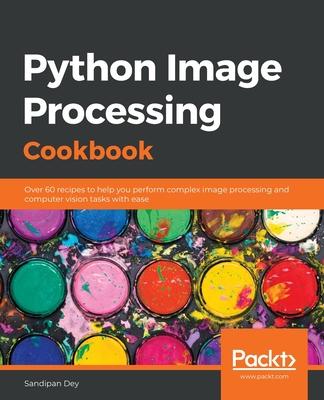Explore Keras, scikit-image, open source computer vision (OpenCV), Matplotlib, and a wide range of other Python tools and frameworks to solve real-world image processing problems
Key Features
- Discover solutions to complex image processing tasks using Python tools such as scikit-image and Keras
- Learn popular concepts such as machine learning, deep learning, and neural networks for image processing
- Explore common and not-so-common challenges faced in image processing
Book Description
With the advancements in wireless devices and mobile technology, there's increasing demand for people with digital image processing skills in order to extract useful information from the ever-growing volume of images. This book provides comprehensive coverage of the relevant tools and algorithms, and guides you through analysis and visualization for image processing.
With the help of over 60 cutting-edge recipes, you'll address common challenges in image processing and learn how to perform complex tasks such as object detection, image segmentation, and image reconstruction using large hybrid datasets. Dedicated sections will also take you through implementing various image enhancement and image restoration techniques, such as cartooning, gradient blending, and sparse dictionary learning. As you advance, you'll get to grips with face morphing and image segmentation techniques. With an emphasis on practical solutions, this book will help you apply deep learning techniques such as transfer learning and fine-tuning to solve real-world problems.
By the end of this book, you'll be proficient in utilizing the capabilities of the Python ecosystem to implement various image processing techniques effectively.
What you will learn
- Implement supervised and unsupervised machine learning algorithms for image processing
- Use deep neural network models for advanced image processing tasks
- Perform image classification, object detection, and face recognition
- Apply image segmentation and registration techniques on medical images to assist doctors
- Use classical image processing and deep learning methods for image restoration
- Implement text detection in images using Tesseract, the optical character recognition (OCR) engine
- Understand image enhancement techniques such as gradient blending
Who this book is for
This book is for image processing engineers, computer vision engineers, software developers, machine learning engineers, or anyone who wants to become well-versed with image processing techniques and methods using a recipe-based approach. Although no image processing knowledge is expected, prior Python coding experience is necessary to understand key concepts covered in the book.
